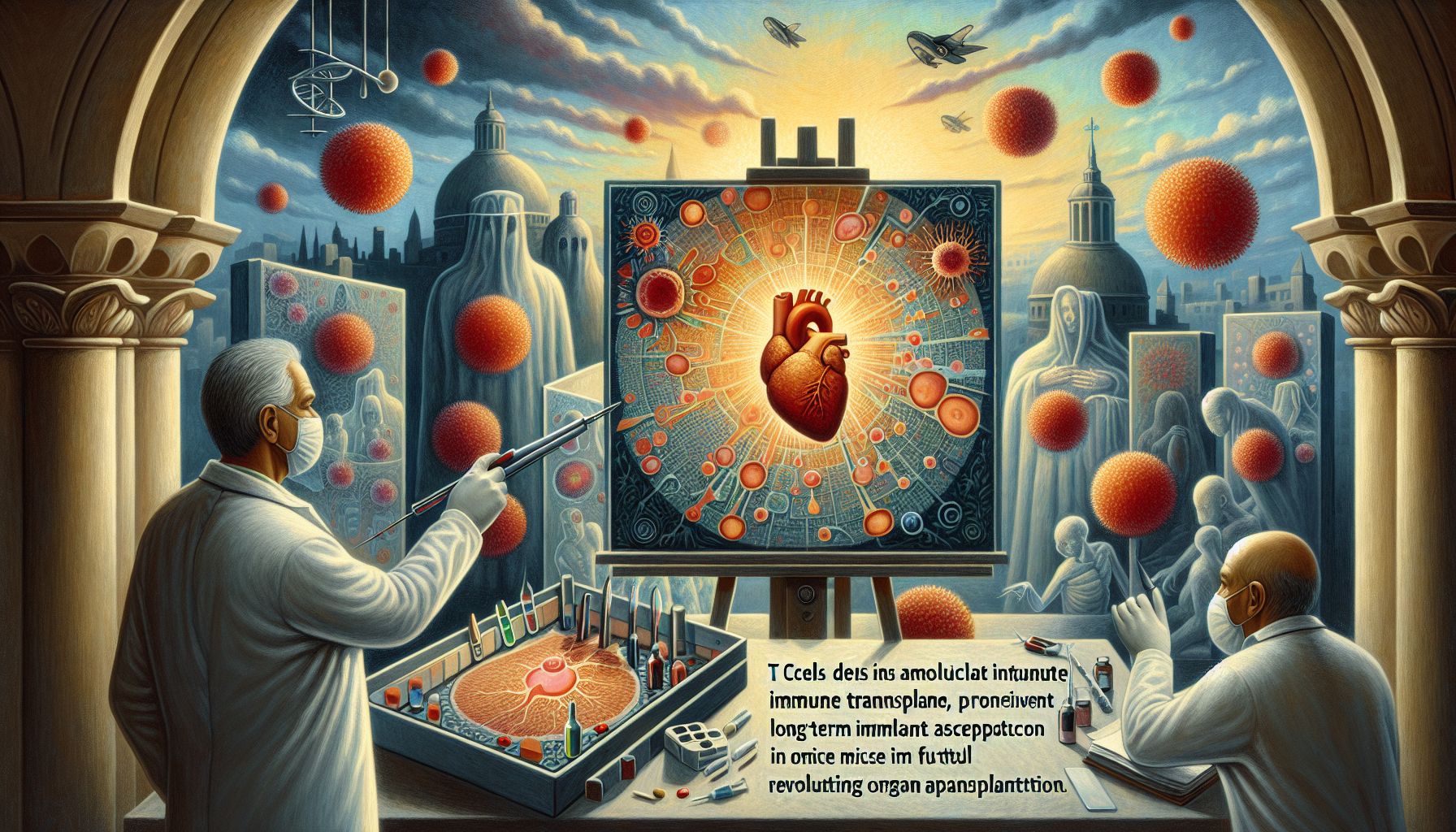T Cells: Key Players in Organ Transplant Success

Eindhoven, Friday, 23 August 2024.
Groundbreaking research reveals T cells’ ability to manipulate innate immune cell memory, potentially revolutionizing organ transplantation. By blocking T cell interactions, scientists achieved long-term heart transplant acceptance in mice without immunosuppressants, offering hope for future human applications.
Understanding the Breakthrough
The research, spearheaded by Radboud University Medical Center, has showcased a revolutionary approach to organ transplantation. By demonstrating how T cells, which are part of the adaptive immune system, can influence the memory of innate immune cells, the study challenges longstanding beliefs about the independence of these immune systems. This discovery offers significant potential for reducing organ transplant rejection rates.
Mechanisms at Play
At the heart of this breakthrough is the CD40 molecule, which plays a crucial role in facilitating direct contact between T cells and innate immune cells. Researchers found that by using nanoparticles to deliver drugs that inhibit the CD40 signal, they could control this interaction. The study involved injecting these nanoparticles into mice, which, when combined with a single injection of the immunosuppressive agent CTLA4-Ig, resulted in the long-term acceptance of transplanted hearts without the need for ongoing immunosuppression[1][2].
Implications for Organ Transplantation
The implications of this research are vast. Traditionally, organ transplant recipients must take immunosuppressive drugs for life to prevent their bodies from rejecting the new organs. These drugs, while effective, come with significant side effects and increased susceptibility to infections. The ability to achieve long-term organ acceptance without these drugs represents a major leap forward in transplant medicine. Furthermore, this approach could potentially be applied to other conditions, such as autoimmune disorders and certain cancers, where the immune system plays a pivotal role[1][2].
The Road Ahead
Lead researcher Raphaël Duivenvoorden and his team at Radboud University Medical Center are optimistic about the future. ‘In the coming years, we will continue this research with the aim of making this treatment strategy possible in humans,’ Duivenvoorden stated[1][2]. The next steps involve translating these findings from mouse models to human clinical trials, which will require extensive testing and validation. Nevertheless, the potential benefits for patients undergoing organ transplantation are enormous, heralding a new era in medical science.
Conclusion
This remarkable discovery underscores the importance of understanding the intricate interactions within the immune system. By manipulating the memory of innate immune cells, scientists have opened the door to more effective and less invasive treatments for organ transplant patients. As research progresses, the hope is that this innovative approach will soon be a viable option for human patients, significantly improving their quality of life and long-term health outcomes.

